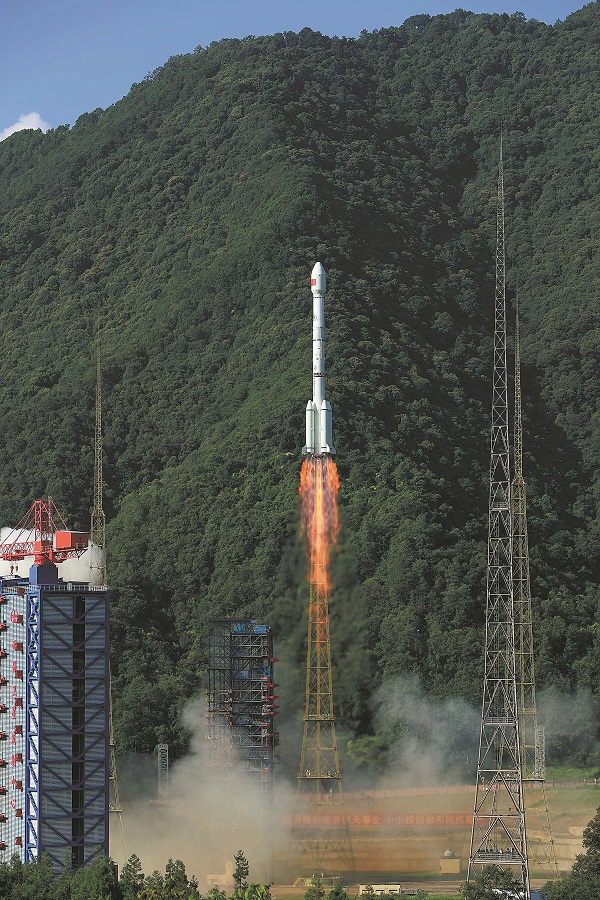2 Beidou satellites placed in orbit
New pair of third-generation spacecraft deployed to enhance navigation services


China launched two satellites into space on Thursday morning for its Beidou Navigation Satellite System, the China Satellite Navigation Office said.
The satellites were carried by a Long March 3B rocket that lifted off at 9:14 am from the Xichang Satellite Launch Center in Southwest China's Sichuan province and were deployed into medium-Earth orbits.
They are the 14th group of third-generation Beidou satellites operating in medium-Earth orbits and the second batch deployed in such an orbit since the completion of the Beidou global system, the office said in a news release.
Developed by the Chinese Academy of Sciences' Innovation Academy for Microsatellites in Shanghai, the two spacecraft will start formal operations after a period of in-orbit technical verification, it said, adding that they are equipped with upgraded atomic clock systems and new inter-satellite data links.
In addition to providing positioning and navigation services, the two satellites will also demonstrate new technologies to be used on the next-generation Beidou system, the office said.
Pang Zhihao, an expert on space exploration technology who worked at the China Academy of Space Technology for decades, said that any vast space-based network like Beidou needs technological and technical upgrades and the replacement of old hardware. Sending new satellites to replace the old or work as backups is very necessary and will enable Beidou to stay in good condition, he said.
Beidou is China's largest civilian satellite system and one of four global navigation networks, along with the United States' GPS, Russia's GLONASS and the European Union's Galileo.
In the past 24 years, 64 Beidou satellites, including the first four experimental ones, have been lifted on 47 Long March 3 series rockets from Xichang. In July 2020, the system was declared complete and began providing full-scale global services.
There are now more than 50 Beidou satellites in active service, including the latest pair.
Yang Changfeng, chief planner of the Beidou system, said on Wednesday that China will accelerate the research and development of the next generation of Beidou.
The new version will be "omnipresent, smarter and more integrated" and upon its completion in 2035, there will be Beidou service not only on land and sea, but also in the sky, outer space and deep within the oceans, he said.
- Beijing courts boost efforts to resolve livelihood-related cases
- Reminder tips from Weifang police spark buzz on Xiaohongshu
- Former head of national tobacco body stands trial on bribery charges
- China warns DPP's attempt to seek 'Taiwan independence' will be futile
- Consistent progress seen in environmental protection
- Former head of China's State Tobacco Monopoly stands trial for graft, abuse of power





































